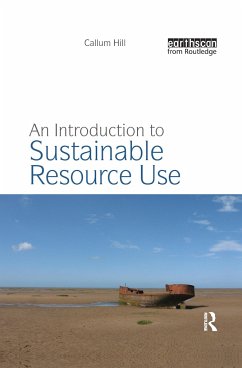
Getting to Grips with Green Plans
National-level Experience in Industrial Countries

PAYBACK Punkte
18 °P sammeln!
One of the more significant recommendations to emerge from UNCED in 1992 was the call in Agenda 21 for countries to develop and implement national sustainable development strategies. Most countries have responded to this challenge. However many countries also have a long history of drawing up planning exercises at this level to deal with environmental problems. 'Green planning' is now used as a shorthand term for a range of such national-level planning initiatives covering both sustainable development and environmental concerns, and countries from the North and the South can benefit from a poo...
One of the more significant recommendations to emerge from UNCED in 1992 was the call in Agenda 21 for countries to develop and implement national sustainable development strategies. Most countries have responded to this challenge. However many countries also have a long history of drawing up planning exercises at this level to deal with environmental problems. 'Green planning' is now used as a shorthand term for a range of such national-level planning initiatives covering both sustainable development and environmental concerns, and countries from the North and the South can benefit from a pooling of knowledge. Getting to Grips with Greens Plans presents a cogent analysis of industrial countries' experiences in this area, drawing out lessons and observations from broad empirical experience. Part 1 provides an overview of national green planning, reviewing its origins and scope, identifying popular approaches and common processes, highlighting important issues such as participation, the influence of domestic politics, and the track record of more ambitious regional plans, and comparing approaches in developed and developing countries. Part 2 goes on to present a series of detailed case studies, drawn largely from interviews with key individuals responsible for coordinating national green planning processes. These cases come from a range of Western and Eastern European countries, the US and Canada, and Australia and New Zealand. Some of these case studies show impressive records of achievement, whilst others demonstrate potential stumbling blocks. All demonstrate the difficulty of putting the concept of sustainable development into practice Barry Dalal-Clayton is director of the Environmental Planning Group at the International Institute for Environment and Development, London. In recent years, Dr Dalal Clayton has been deeply involved in analyzing approaches to national sustainable development strategies and environmental action plans in many countries, and in advising governments and international agencies in this field. His other current research interests include environmental impact assessment, community-based wildlife management and land use planning. Originally published in 1996














